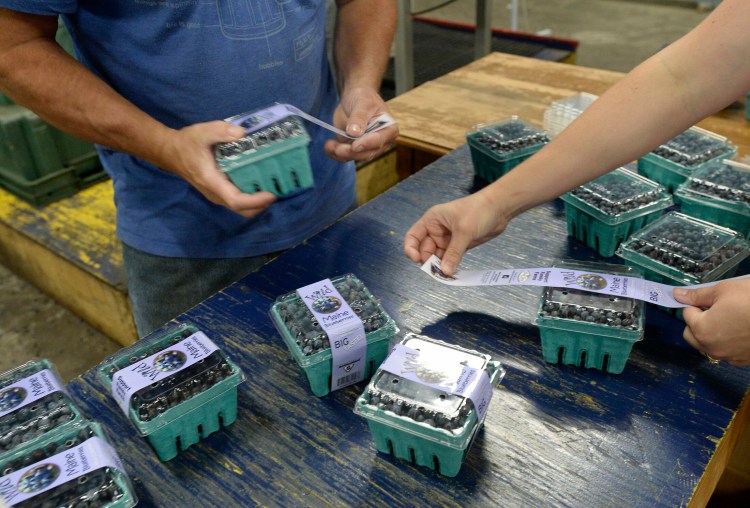A proposal to expand and diversify the Wild Blueberry Commission of Maine has cleared its first legislative hurdle as the industry struggles through an economic downturn.
Members of the Legislature’s Committee on Agriculture, Conservation and Forestry voted Thursday to move a bill that would change the makeup of the commission. The motion was passed unanimously by the members in attendance.
The commission promotes and markets the state’s signature berry and coordinates education, research and development. It is funded by a 1.5-cent tax on every pound of berries harvested.
But critics allege the commission is weighted to serve large growing and processing companies and disadvantages independent growers. The eight-member commission has five spaces for processors, entities that handle 1 million pounds or more a year, and three for growers, who grow and process less than 1 million pounds.
“There has never been any true representation on behalf of true blueberry growers,” said Robert Hammond, a blueberry and cranberry grower from Washington County.
Under the bill, L.D. 145, the commission would expand to 10 members, with five spaces reserved for growers and five for processors. Supporters hope that will give more strength to smaller growers and diversify marketing for products other than frozen berries. About 99 percent of Maine’s annual blueberry crop is frozen.
Longstanding tensions between the two sides have boiled over in the last couple of years, as the blueberry industry has been rocked by low prices and heightened competition from cultivated blueberries. Maine is the only state that harvests wild blueberries on a commercial level.
“It is because of the downturn in the industry that this has bubbled up,” said Patricia Kontur, the commission’s interim director.
In 2017, Maine growers pulled in only 67.8 million pounds, a 33 percent drop from the year before, and prices slid to 26 cents a pound, the lowest in a decade, according to the most recent federal data available.
In the last few years, prices have been so low that some growers have opted not to harvest their barrens at all. At the same time, high-bush blueberries cultivated in California, Canada and South America have grown internationally and put serious pressure on the frozen wild berry industry.
“We’re hoping that with new people on the commission there will be some new ideas, there might be some new recommendations,” Kontur said. “We are really hoping that some new ideas are considered, new plans moving forward that might solve some of the issues here.”
Send questions/comments to the editors.



